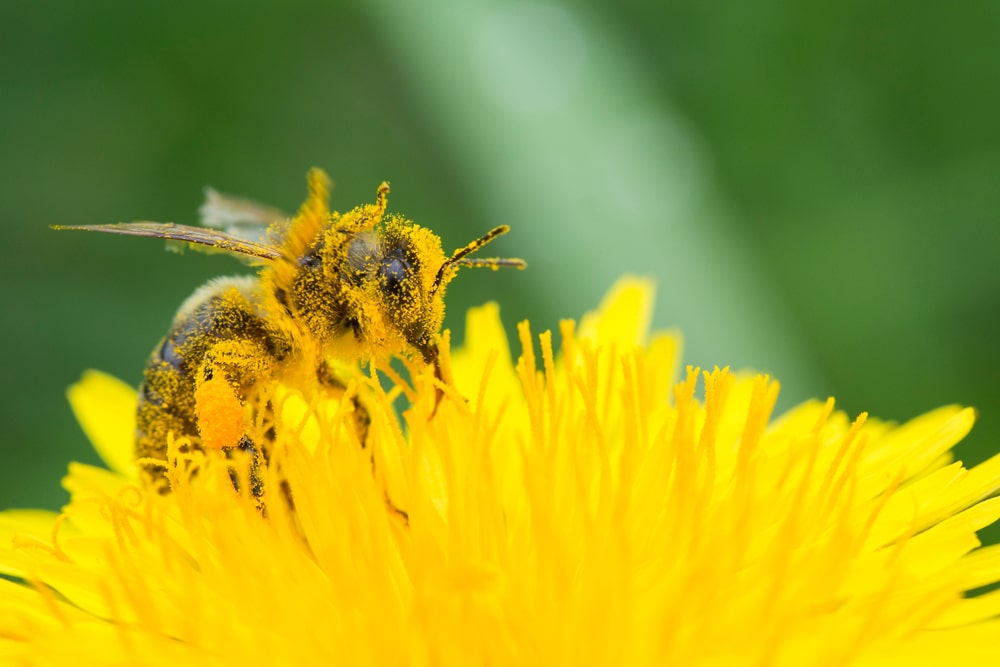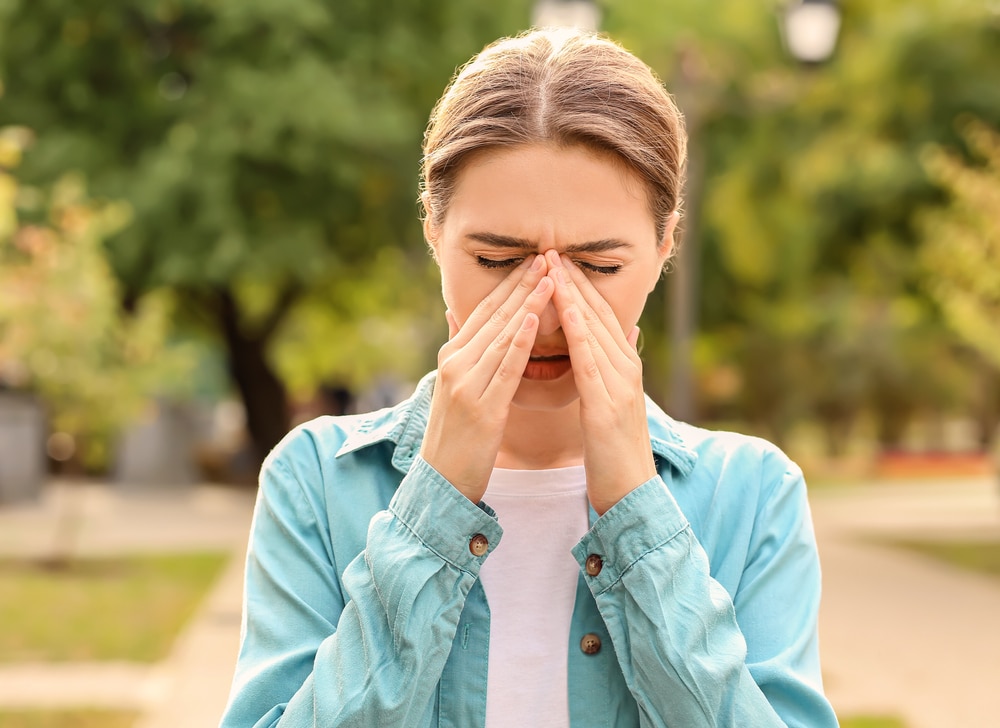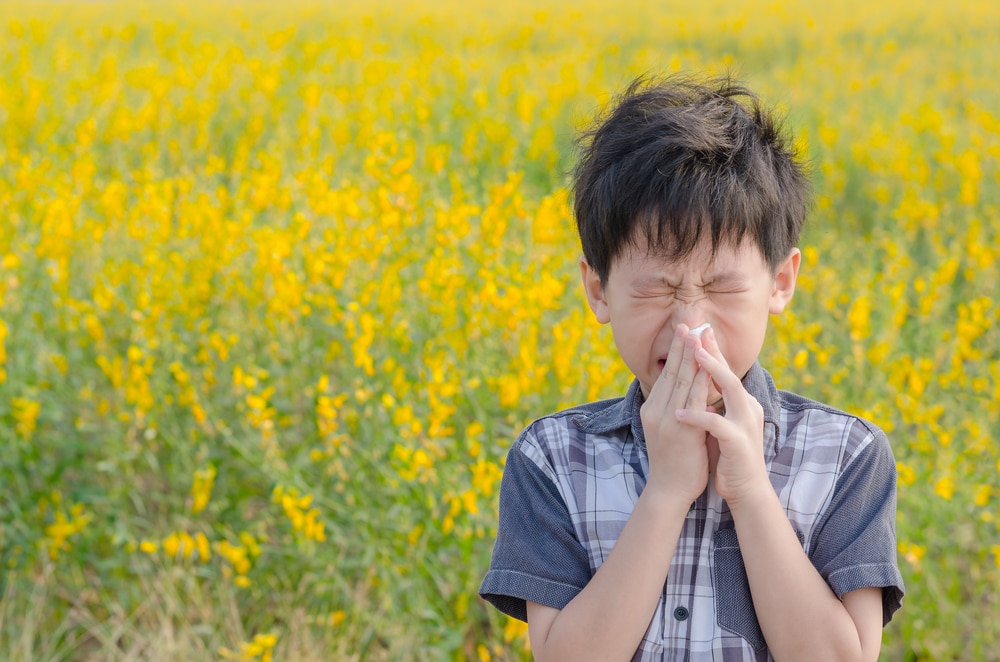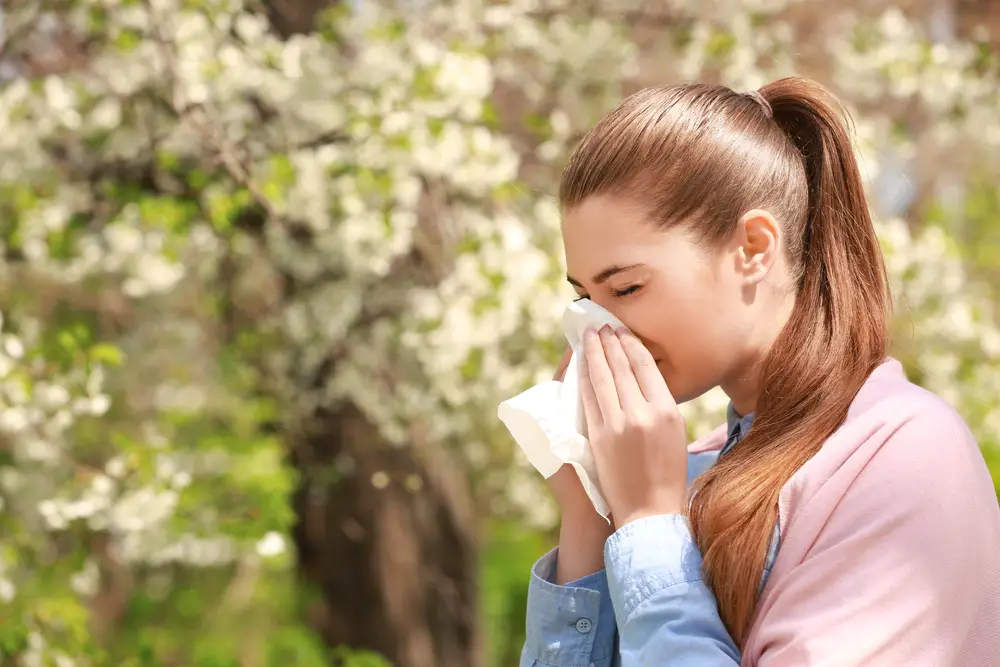If you’re anything like me, you’ll start sneezing and get itchy at the beginning of pollen season. It’s pretty unpleasant, and I’ve long wondered whether my pollen allergy could be more severe than first thought. But it’s a natural substance, so is pollen actually bad for you?
Pollen is not bad for humans. Pollen allergies mean the immune system thinks pollen is a threat, so the body takes action to stop it. Treating allergies requires various methods, such as medication, cleaning, planning, and consulting with your doctor.
What Is Pollen?

Pollen is a powdery yellow substance the male parts of plants (the stamen) make. A pollinator (insect, animal, or something else) transfers this pollen to the female parts of other plants (the stigma). This fertilizes those plants, triggering fruit and seed production.
Why Are Some People Allergic To Pollen?

Pollen is a fine substance spread between flowering plants and trees via various methods. These include insects, animals, wind, and water.
Scientists are unaware of what causes some people to develop a pollen allergy, although it’s thought genetics play a huge role. I believe this to be true as my sister and I suffer from a pollen allergy, which we have passed down to our children!
Pollen allergies happen when pollen enters the body through the nose or mouth, and the immune system mistakes it for something dangerous. In response, the body tries to eliminate the pollen via watery eyes, sneezing, and coughing.
You may also notice redness and itchy skin if you have a pollen allergy. This is a side effect of the chemical known as histamine, which the body releases as an immune response.
Is Pollen Bad For You?

Generally speaking, pollen is completely harmless to humans. Most people can come into contact with this natural plant substance and suffer no ill effects.
But it can cause a range of problems for those with allergies. Allergic rhinitis is one of the most common symptoms of a pollen allergy. While not fatal, it can cause discomfort and irritation from excessive sneezing, coughing, and wheezing.
For some people, the sinuses may become blocked, which can cause facial pain and may even affect their sense of taste and smell.
Moreover, those with a pollen allergy may be susceptible to allergic conjunctivitis. Conjunctivitis affects the eyes and can cause watering, redness, and swelling.
While pollen allergy symptoms are not necessarily debilitating, they can often be enough to affect your quality of life. Pollen allergies usually occur in the warmer months when most plants pollinate. However, some plants pollinate year-round, and particularly sensitive people may have ongoing issues.
The Effects Of Pollen On Respiratory Health
I am asthmatic, and certain things trigger this respiratory condition. One of those is tree pollen. There are several types of pollen, including tree, ragweed, and grass pollen. Different people may be more sensitive to different types.
When my hayfever (another name for pollen allergies) symptoms flare up, one of the first things I notice is I need to take my reliever inhaler more frequently.
This happens when pollen grains enter the body and are not successfully flushed out by sneezing, coughing, or watering eyes. Instead, they’re able to travel to the alveoli (the deeper parts of the lungs), where they cause further irritation and swelling.
The result? Difficulty breathing, a tight feeling in the chest, wheezing, and coughing. In severe cases, pollen can affect those with respiratory conditions so badly that they need hospital treatment. This would be true, for example, in an asthma attack.
How To Deal With Pollen Allergies

Pollen allergies can dampen the quality of your life, and I know plenty of people who avoid going outdoors to prevent symptoms. But this isn’t something you need to lock yourself away for.
Take Medication
There are many over-the-counter medications, like Benadryl, which are effective in lessening the symptoms. Some people find they need something stronger, and it’s possible (and recommended in any case) to see your doctor, who can prescribe you a more potent medication.
Try Natural Methods
There are also plenty of natural methods you could use to combat your allergies as well if you’re not keen on taking drugs (although you’ll still want to consult your doctor beforehand).
For example, many people find using an air purifier at home very effective, as this removes allergens from the air. While many people simply close the doors and windows to avoid pollen, this reduces airflow and can make the home feel too warm, so an air purifier is a great alternative.
Learn Your Triggers And Prepare
It’s also a really good idea to learn what triggers your symptoms. As I discussed earlier, different types of pollen affect different people. For me, it’s tree pollen, so I tend to experience my symptoms at the beginning of spring. Taking preventative measures such as starting medication early can help alleviate symptoms.
Plan When You’re Working On Your Property
It’s also worth mentioning that while you don’t need to lock yourself indoors, working in the yard early in the morning before the pollen count gets too high is a good idea. That said, I always like to check the pollen count online to know what to expect.
Keep Everything Clean
Keeping your clothing and home clean will eliminate any pollen particles. I’d highly recommend using a vacuum cleaner with a HEPA filter, as this will trap allergens inside the machine.
Consult Your Doctor
Being asthmatic, I know the importance of ensuring I take my preventer inhaler daily. Your doctor will tell you the correct dose, and it’s vital you stick to this. These medications are designed to help the lungs overcome the effects of triggers before they start. Missing a dose could lower your resistance and cause further problems with respiratory conditions.
In the worst cases, obtaining an allergy shot from your doctor is possible. This form of immunotherapy is administered over a series of shots, each containing a slightly increased dose of allergens. It allows your body to build up a natural defense and stops the immune system from reacting to something that isn’t a threat.
Unfortunately, there is no cure for pollen allergies, but by implementing the measures above, you should be able to control your symptoms.
Final Thoughts
While pollen isn’t harmful to humans, many people, myself included, have a pollen allergy that can cause unpleasant or even life-threatening symptoms.
But with the proper steps and care, you can continue to live a high quality of life.

